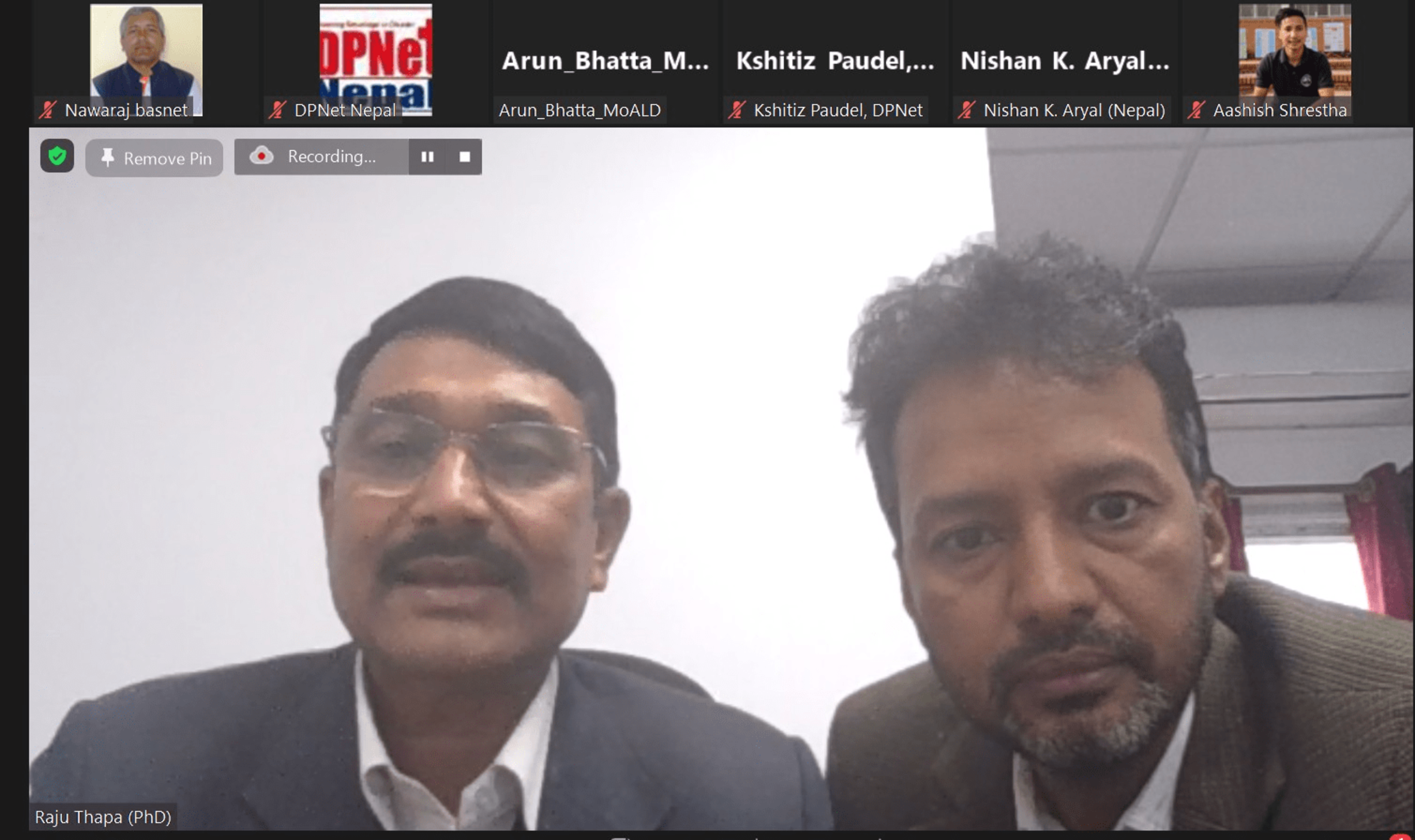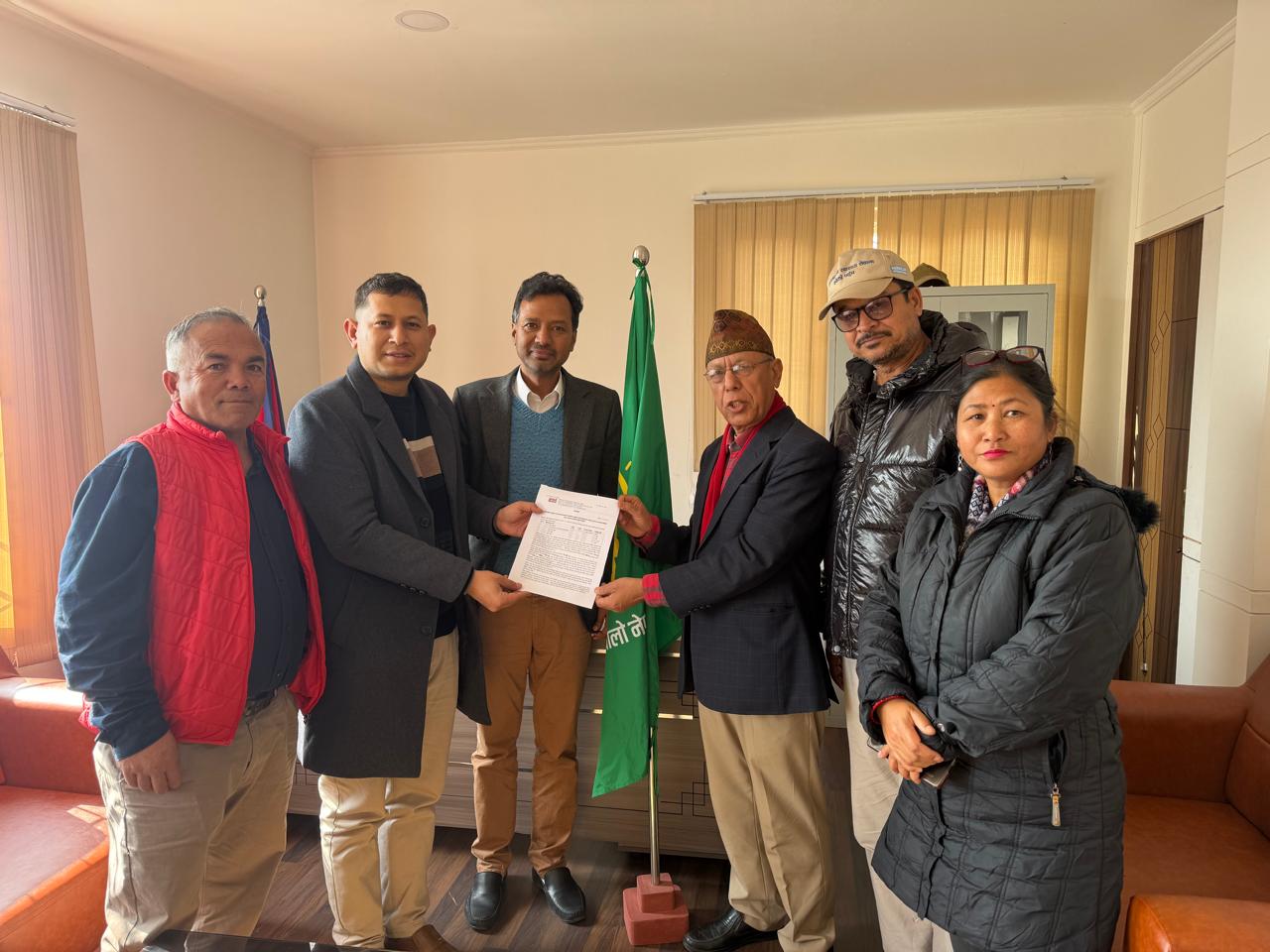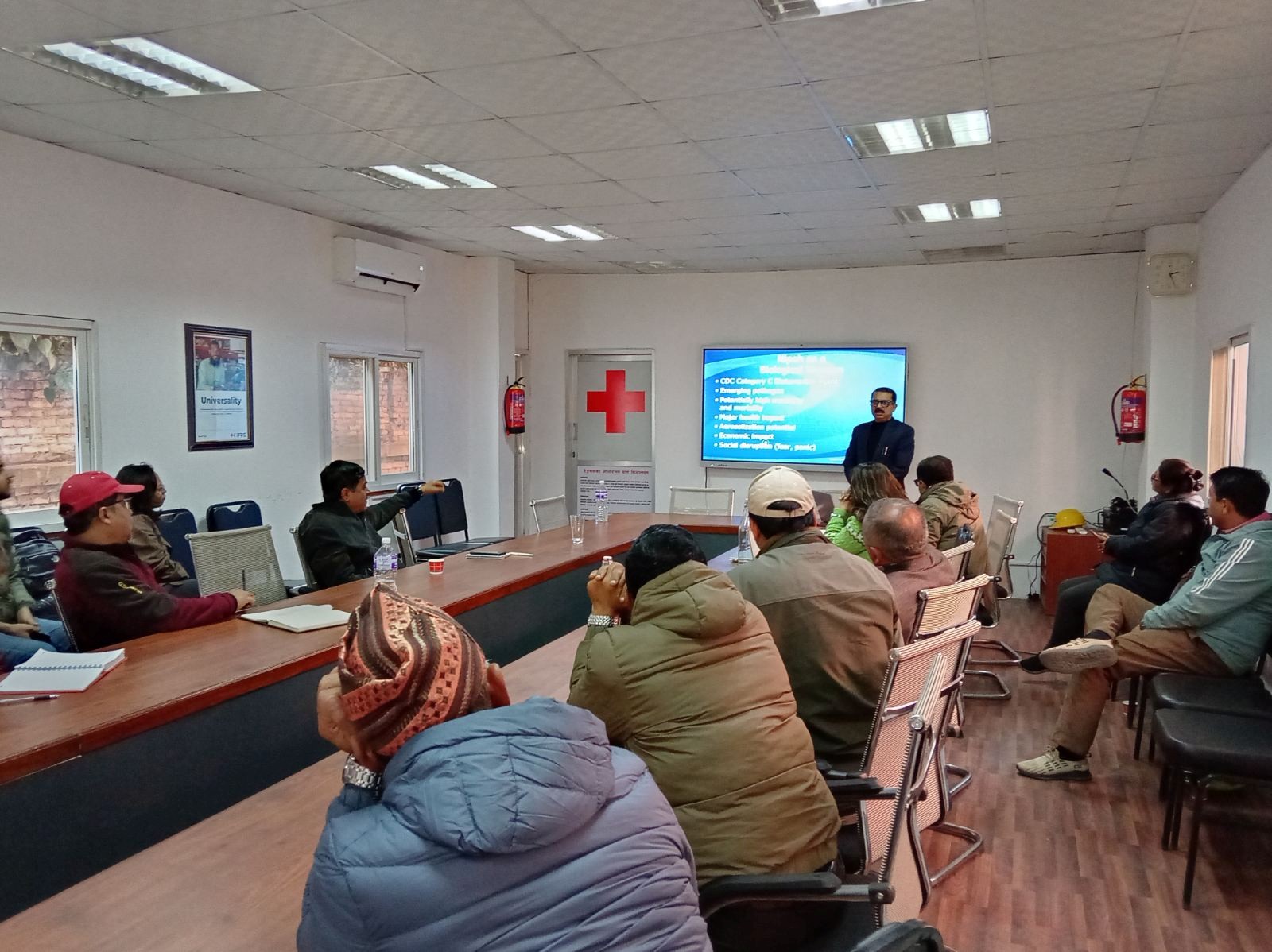Discussion on Enhancing Agriculture and Livestock Resilience Post Bajhang Earthquake

On October 30, 2023, DPNet Nepal organized a Discussion on Enhancing Agriculture and Livestock Resilience post-Bajhang Earthquake in collaboration with the Ministry of Agriculture and Livestock Development (MoALD) and the Food and Agriculture Organization (FAO). The event aimed to plan and coordinate agriculture and livestock impact assessments, focusing on the needs of affected households. Key figures present at the discussion included Mr. Dhruba Bahadur Khadka, Under Secretary/ Spokesperson/Information Officer of National Disaster Risk Reduction and Management Authority (NDRRMA), Dr. Arun Prakash Bhatta, Under Secretary at MoALD, Dr. Raju Thapa, Acting Chair of DPNet Nepal, Mr. Nawaraj Basnet, Chairperson of National Farmers Group Federation Nepal (NFGF), and Mr. Thakur P. Chauhan, Project Coordinator of FAO, among others from MoALD, DPNet, and FAO.
Dr. Raju Thapa emphasized the impact of the Bajhang Earthquake, highlighting the damage to agriculture caused by post-monsoon rain and hailstorms following the earthquake. He advocates for the necessity of proper grain and food storage to withstand upcoming rains and the winter season. Dr. Thapa explained the significant damage to the attic floor, including traditional grain storage methods like "Bhakari," based on DPNet's observations in the earthquake-affected area. He also elaborated on DPNet's communication with the Chief District Officer(CDO) of Bajhang, emphasizing the need for alternative grain storage solutions, such as hermetic bags. Dr. Thapa stressed the urgent need to deploy a team to assess the impact on agriculture and livestock before the Tihar festive time to achieve timely recovery.
Mr. Thakur P. Chauhan stated that the FAO has currently prepared 40,000 hermetic bags for transportation to assist those affected by the Bajhang earthquake. He outlined that these bags would be transported to the Bajhang headquarter and handed over to the District Disaster Management Committee (DDMC). The process of dispatch and distribution will occur after the bags are delivered to the DDMC, which will further distribute them to the municipalities. Expressing the need for support and coordination from the DPNet Team, Mr. Chauhan explained that the available 40,000 bags are intended for distribution, with 10 bags allocated among 4,000 families. He emphasized the necessity for damage and needs assessment, proposing that 5% of these 4,000 households undergo on-site verification. Additionally, he assured that FAO would cover the transportation and lodging expenses for the assessment team.
Mr. Dhruba Bahadur Khadka highlighted the importance of assessing the needs before distributing the bags to ensure they reach those who are genuinely in need, rather than distributing them in equal numbers. He emphasized the necessity for coordination and collaboration with local-level government authorities to achieve this goal. Additionally, he underlined that these airtight hermetic bags have multiple purposes for storing grains and crops. Mr. Khadka stressed the importance of educating farmers on the correct usage methods for long-term effectiveness. To illustrate the strategy, he suggested that providing 6-8 bags to farmers with fully damaged houses and 2 bags each to those with partially damaged houses could be an effective approach. Moreover, Mr. Khadka mentioned that NDRRMA is conducting building damage assessments in earthquake-affected areas and is ready to support the preparation of questionnaires and other aspects of the damage assessment.
Mr. Nawaraj Basnet highlighted a critical gap in the initial damage assessment, noting that it primarily focused on residential buildings, overlooking the damage to cattle sheds and storage houses. He emphasized the urgent need for improving grain storage and strengthening storage systems, particularly crucial during the current harvesting season. Mr. Basnet stressed the importance of protecting and preserving seeds for future agricultural use, essential for the affected areas. Moreover, he emphasized the need to focus on agricultural efforts to enhance the livelihoods of families in these affected regions. Mr. Basnet also highlighted the necessity of distributing shelter kits as part of the relief efforts to meet the specific needs of affected families. Additionally, he underscored the importance of engaging Civil Society Organizations for a comprehensive and accurate needs assessment, ensuring that materials and aid reach the families in genuine need. He praised DPNet for providing daily situational reports on the Bajhang Earthquake and expressed the readiness of NFGF to support the assessment and subsequent recovery process.
Dr. Arun Prakash Bhatta shared that MoALD has officially proposed to FAO to collaborate on the distribution of hermetic bags. He highlighted the Ministry's readiness to support assessments aimed at minimizing further damage to food and crops, reinforcing storage systems, and enhancing the livelihoods of families through recovery plans. He proposed distributing 8-10 hermetic bags to fully damaged households and 2-4 bags to partially damaged households. Emphasizing the importance of prioritizing agriculture and livestock in the field-level assessment, Dr. Bhatta outlined the data collection methods using focal group discussions and household surveys. He stressed the need for relevant questionnaires and suggested employing the KoBo Toolbox for this purpose. According to Dr. Bhatta, MoALD seeks support from DPNet to coordinate these efforts and requested their assistance in translating the questionnaires into Nepali, aiming to enhance the assessment's relevance and alignment with local needs.











